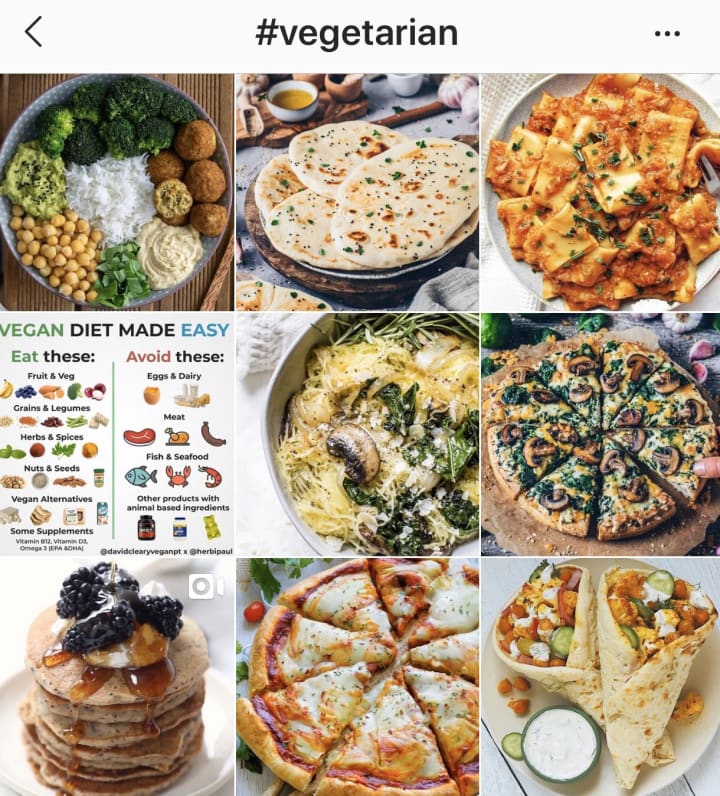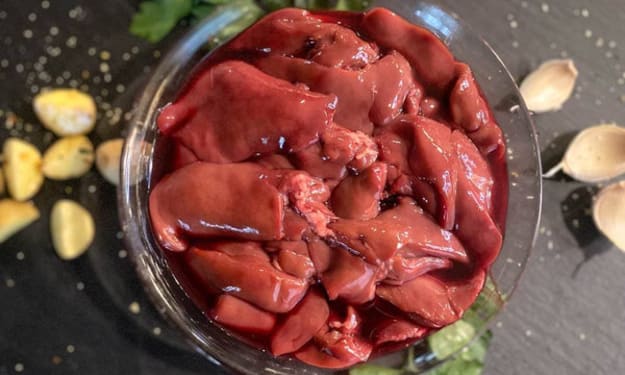The Truth Behind a Plant-Based Lifestyle
Honest advice from an accidental herbivore

The whole thing started as a fluke.
A dinner with my girlfriend at Nando’s gone wrong. Eight hours in the Georgetown University Hospital, two Xrays, a tube shoved up my nose, and a pint of Halotop later led me to sware off meat for a few days. I’ll spare you the details of what happened, but know this; those days turned into weeks and weeks into months.
For 351 days I was a full-fledged vegetarian.
When I first started talking about this decision, it was often met with skepticism and confused looks. I was surprised at how little people knew about plant-based diets, and to be honest, didn’t see why everyone cared so much. From my perspective, not much had changed. To the outside world, it felt like a seismic shift in who I was as a person.
Most individuals I encountered assumed that my motives were rooted in environmental and animal rights efforts (a nice benefit) or because of the increasingly popular aesthetic that comes with the vegetarian lifestyle.
In reality, the trendy pictures on Instagram with glowing fitness models or beautifully crafted bowls filled to the brim with avocado, ancient grains, and bright vegetables advertise a false narrative. These images fail to detail the day-to-day experiences that go into making a successful, healthy transition.

We don’t often hear about the challenges people face or the struggles they endure. Becoming a vegetarian isn’t that easy for everyone. The few family members in my life who have tried to become vegetarians were forced to give it up due to vitamin deficiencies (in both cases iron was the culprit). Behind the hash-tag friendly content and inspiring quotes, adopting a plant-based lifestyle isn’t always as simple as it seems.
Herbivores Are Having A Moment
While vegetarianism may have recently captured a rather hipster cache, the popularity of plant-based foods has been thrust into the mainstream spotlight. According to a study published by Vegetarian Times, nearly 8 million Americans are vegetarians with another 22 million following a vegetarian-inclined diet.
It’s not just millennials who have embraced vegetarianism either.
Professional athletes, suburban parents, CEO’s, and celebrities are all compelled to abandon meat, a dietary mainstay in our culture, and pick up a piece of tempeh instead.
“Not only does it help me on the court, but I feel like I’m doing the right thing for me”- Venus Williams
YouTube is flooded with an endless array of vegetarian vloggers, startups like Impossible Foods are capitalizing on a growing market forecasted to be worth $5 billion by 2020, and events catered to vegetarians are expanding. Even Burger King released a plant-based burger this year.
It’s evident that the demand for plant-based foods is rising. But can average consumers differentiate between the social-media-driven, idyllic version of vegetarianism and reality?
The Disadvantages You Don’t See
Simply becoming a “vegetarian” doesn’t make you any healthier. Without research and some testing, you won’t reap the benefits that so many health-conscious consumers crave, and may end up getting hurt or sick.
Not long into my journey, I discovered this the hard way.
First came the energy fluctuations. After about a week or so I noticed that my mind and body felt lethargic during workouts and recovery took several days longer than I was used to.
“Since plant proteins take longer for your body to break down and reassemble in useable parts, you may notice your body takes a bit longer to recover from a good workout or run.”- Bess Berger, New Jersey-based dietitian
Going out with friends and family wasn’t always easy. Work events, parties, and traveling often mean filling up on junk or eating nothing at all. Meat substitutes are not as healthy as they appear, packed with sodium and other additives. As an athlete, my grocery runs nearly tripled to maintain adequate caloric intake due to lower density foods. Plus, fresh fruits and vegetables have a short shelf life.
It’s important to understand that the switch from eating meat to vegetarianism isn’t all power smoothies and acai bowls. Doing it the right way is more difficult.
Final Thoughts
Despite the downsides, vegetarianism clearly has staying power. The key is to be mindful of what you put in your body, and hopefully that mindfulness will extend to other aspects of your life.
About the Creator
Jonah Malin
I write about wellness, productivity, philosophy, and life // Content @bdagencysocial // Career Advice Author @LaddersHQ // Newsletter: jonahmalin.com/barelyweekly
Enjoyed the story? Support the Creator.
Subscribe for free to receive all their stories in your feed. You could also pledge your support or give them a one-off tip, letting them know you appreciate their work.






Comments
There are no comments for this story
Be the first to respond and start the conversation.